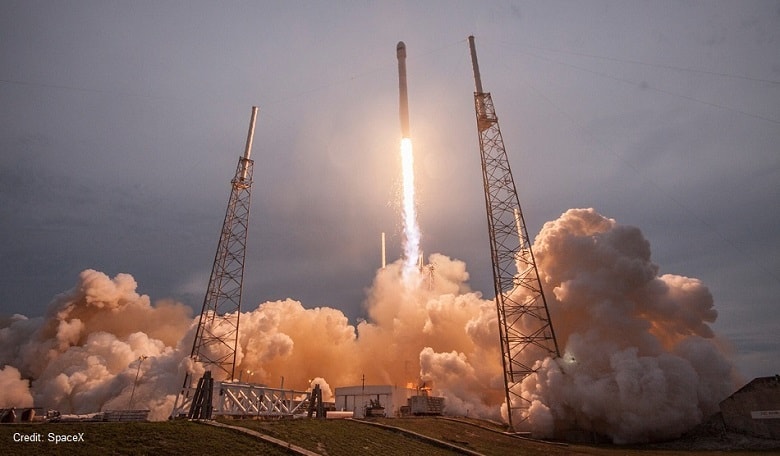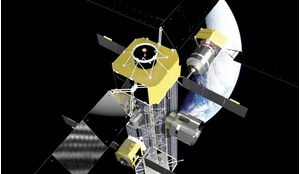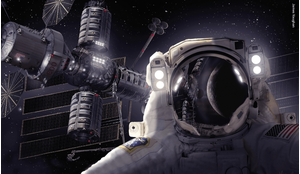New space is the term for commercial companies exploring and exploiting space for profit. This lies beyond the traditional role of government-funded space exploration. It is uncharted territory with no new regulatory structure in the form of a binding international treaty that adequately addresses the needs of this community. In the coming years, we must address this treaty gap, and find a way of regulating new space companies without stifling them.
As always seems to be the case, technology and innovation in business and entrepreneurial talent has forged ahead of the regulatory guidelines and the necessary standards for safe operations and fair competition. This landmark study seeks to consider in a comprehensive and thoughtful way the best way forward in “new space” initiatives. The history of the world and humankind has always been that of exploration, innovation, and progressive change. The farthest shore for humanity is now space application, exploration, and perhaps, in time, settlement.
It is now time to consider how to use space to realise our potential. It is also the time to include serious consideration of new space technology to protect the people of planet Earth from cosmic hazards that includes comets, potentially hazardous asteroids, solar flares and coronal mass ejections, and even orbital debris. In moving forward, the key will be balance – judgment that allows innovation and new space applications, without reckless endangerment or unfair or unwieldy regulations.In late May 2014 some of the world’s experts on space law, regulations and standards came together with a number of eminent space scientists, engineers and business leaders. They assembled at the McGill University Institute of Air and Space Law in Montreal, Canada. The challenge was to consider a new international initiative to bring an improved system of governance to the now blossoming field of new space activities.
Some 120 participants from 22 countries considered the rather dreary landscape of new space treaties that had been agreed since the 1970s — i.e. none. They also noted the dramatic increase in new space activities in space communications, remote sensing, navigation and timing, as well as space systems related to national security. Even more to the point they reviewed totally new areas of commercial space activities and planning that did not exist in the early years of the space age.
As always seems to be the case, technology and innovation in business and entrepreneurial talent has forged ahead of the regulatory guidelines and the necessary standards for safe operations and fair competition.
These activities include on-orbit refuelling, retrofit, and servicing, possible active orbital debris removal from LEO, solar power satellites, space mining, planetary defence, space tourism, hypersonic transportation, and commercial activities in protospace (the area above commercial air space, i.e. above 21km, and below the altitude most commonly accepted as the start of outer space, i.e. 100km, such as high altitude platforms systems, dark sky stations, robotic freighters, and even the deployment of private space stations and space colonies in orbit or on celestial bodies.
Many of these activities involve totally new types of commercial space ventures including the actual development and deployment of new space hardware despite the absence of a clear regulatory framework that would allow fair and reasonable competition under a consistent set of rules.
The result of the 2nd Manfred Lachs Conference was a unanimously agreed document called the Montreal Declaration of May 2014. It was agreed to carry out an interdisciplinary study of Global Space Governance that would combine the expertise of scientists, engineers and business leaders from the space community with leading experts in space law. Together they would undertake the first comprehensive look at the many challenges that face the world of space commerce and security in the 21st century and then see what regulatory reforms, standards or other measures might allow the new horizons of space to be equitably achieved.
A 3rd conference was held in March of 2015 at the headquarters of the International Civil Aviation Organization in Montreal to continue this important work. This conference focused on new space commercialization and the law. The conference provided an enabling environment for engagement and deliberations on all relevant aspects of new space by representatives of all the major stakeholders.
All too often business leaders, economists, space scientists and engineers meet and talk together about future initiatives in space, while space lawyers and regulators consult together in totally different sessions. The Montreal Declaration emphasized the need for interdisciplinary consultation and interchange between the space commerce world and the space lawyers and policy makers. It also emphasized the need for this new type of Global Space Governance study to be innovative and visionary, but at the same time, realistic. This meant that idealistic but unrealistic proposals for a number of new space treaties and a dramatic new regulatory space regime would not be helpful to today’s space challenges.
The objectives of the Global Space Governance study are to identify today’s new space challenges to doing business in space, as well as to identify viable new regulatory mechanisms that could provide near term answers and identify key actors. This means striving for realistic and obtainable possible courses of action, through such means as:
Looking to ‘new model’ national space laws (such as the French Operations Space Act and its mandated observance of the 25 year de-orbit rule)
Examining codes of conduct and new types of standards — technical, operational, safety, etc.
It is now time to consider how to use space to realise our potential.
Considering transparency and confidence-building measures
Identifying possible nationally or regionally sanctioned demonstration programmes
Developing new concepts related to space and protospace traffic management
Proposing agendas for Inter-Agency consultation among national space agencies or key international fora such as the COPUOS Working Group on Long-Term Sustainability of Space Activities, UNISPACE + 50, or the International Astronautical Congress/IAA
Considering key roles for non-governmental agencies such as the Secure World Foundation, the International Association for the Advancement of Space Safety, the Space Council of the World Economic Forum, and so on.
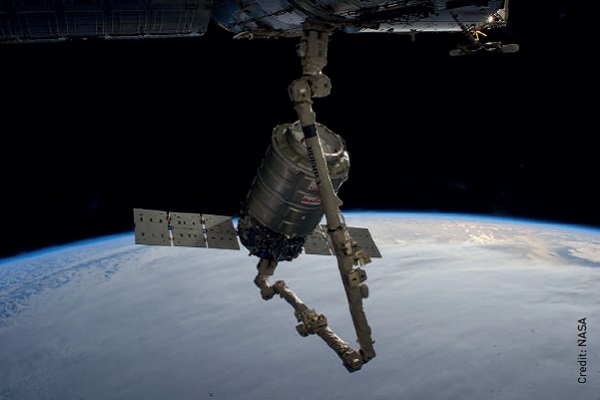 Commercial companies, such as Orbital Sciences Corp. now regularly re-supply the International Space Station.
Commercial companies, such as Orbital Sciences Corp. now regularly re-supply the International Space Station.
This program is now well underway with the participants involved in the drafting of some 24 chapters that analyze the future of space in terms of substantive technical, operational, and economic challenges. We will then consider what types of regulatory frameworks, standards, model national laws, or sanctioned demonstrations can promote and benefit new space activities, but in a structured and fair manner. The objective is to complete in coming months a comprehensive “Global Space Governance” study with an executive summary, plus a popular reprise of the study for the broader public entitled new space Horizons.
It is hoped that these materials will be broadly distributed around the world to allow public officials to consider the ideas of the broad-based interdisciplinary and international team that has been assembled to take on this ambitious task. Part of the formula has been to assemble not only a broad range of space experts but to involve many key organizations as well.
Joining the McGill Air and Space Law Institute are experts from the Global Space Institute; the Secure World Foundation; the International Association for the Advancement of Space Safety; the International Space University; the Space Council of the World Economic Forum; George Washington University Space Policy Institute; SpaceX; Virgin Galactic; Swiss Space Systems (S3) of Payerne, Switzerland; National Institute of Advanced Studies of Bangalore, India; National and Kapodistrian University of Athens, Greece; Russian Space Agency; Beijing Institute of Technology, China; the School of Law of Xi’an Jiaotong University, China; the Pan African University of Addis Abba, Ethiopia; Space Institute for Research on Innovative Uses of Satellites of University of Toulouse, France; University of Adelaide, Australia; Australian Air Force; Canadian Space Agency, and several private consultants.
The Global Space Institute, the International Association for the Advancement of Space Safety (IAASS) and the McGill Institute of Air and Space Law, as represented by the three authors of this article, are committed to seeking the broadest possible input and the most fair and reasoned input to the Global Space Governance study. We are thus seeking to hear from anyone reading this article concerning any one of the many areas that this study addresses. We are particularly seeking to consider new and innovative ideas concerning new space applications, space safety, and space security, as well as volunteers that will help us review and critique the 24 chapters in the omnibus study.
The preliminary schedule is to have the study completed by May 2016. Our hope is that during the International Astronautical Congress in Jerusalem and other space venues, we’ll be able to recruit additional contributors and reviewers of this landmark Global Space Governance Study. Feel free to contact the organizers at: ram.jakhu@mcgill.ca. The precise wording of the Montreal Declaration is as follows.
The Montreal Declaration
The 2nd Manfred Lachs International Conference on Global Space Governance, held at McGill University, in Montreal, Canada, on 29-31 May 2014:
Having brought together over 120 experts from 22 countries (space-faring and non-space faring nations) involved in various aspects of space activity and regulation;
Having served as an objective venue for the conduct of international and interdisciplinary deliberations on different aspects and perspectives of global space governance;
Recognizing that the current global space governance system that was created during the 1960s and 1970s has not been comprehensively examined by the international community since its establishment;
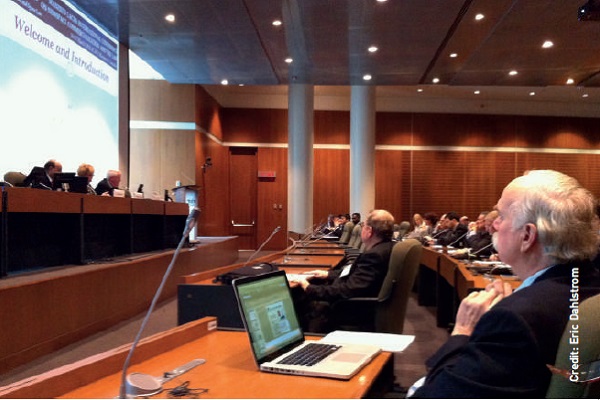 Prof. Ram Jakhu welcomes the attendees at the 3rd Manfred Lachs conference held at the International Civil Aviation Organization headquarters in Montreal, Quebec, Canada in March of 2015.
Prof. Ram Jakhu welcomes the attendees at the 3rd Manfred Lachs conference held at the International Civil Aviation Organization headquarters in Montreal, Quebec, Canada in March of 2015.
Recognizing that the concept of global governance is comprehensive and includes a wide range of codes of conduct, confidence building measures, safety concepts, international institutions, international treaties and other agreements, regulations, procedures and standards;
Noting that numerous developments have occurred in the world in general, and the space sector in particular, with serious implications for current and future space activities and for the sustainable use of space for peaceful purposes for the benefit of all humankind (i.e. the global public interest in outer space),
Believing that the time has come to assess the efficacy of the current regime of global space governance and to propose an appropriate global space governance system that addresses current and emerging concerns;
HEREBY resolves by consensus to:
Call upon civil society, academics, governments, the private sector and other stakeholders to consider establishing a Working Group to prepare for and convene an international conference to deliberate and agree upon recommendations to governments and relevant international organizations aimed at the establishment of a global governance regime for peaceful and sustainable space exploration, use and exploitation for the benefit of all humankind;
All too often business leaders, economists, space scientists and engineers meet and talk together about future initiatives in space, while space lawyers and regulators consult together in totally different sessions.
Ensure that the proposed international conference is held as soon as possible with global participation by all key stakeholders (i.e., state and non-state actors) including: international intergovernmental organizations; relevant regional organizations; non-governmental organizations; appropriate state ministries (departments) and space agencies; academic institutions; appropriate commercial enterprises; and concerned individuals;
Call upon the McGill University Institute of Air and Space Law to take the lead in initiating, completing and broadly distributing through all forms of media, an international interdisciplinary study that examines drivers of space regulations and standards prior to, and in support of, the proposed international conference, targeting a global audience;
Ensure that the above-mentioned study examines, inter alia:
(i) changing global economic, political and social conditions and space infrastructure dependence;
(ii) identification and assessment of all known space threats;
(iii) space opportunities and the need for sustainable and peaceful use, exploration and exploitation of space for all humankind;
(iv) safety, technical and operational gaps to be filled; and
(v) appropriate space governance standards, regulations, arrangement, agreements and institutions relevant to current and emerging issues of space activities.
Done in Montreal, this 31st day of May 2014.





